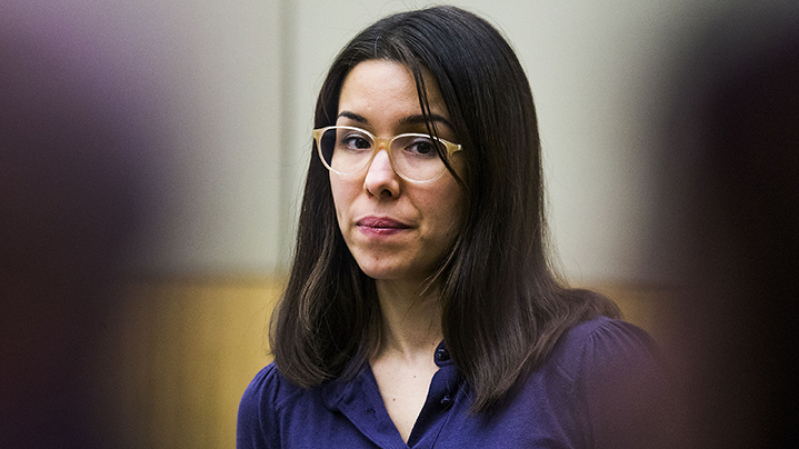
In a sentencing retrial that has gone on longer than the actual trial itself, Jodi Arias may soon learn her fate now that the prosecution has rested its case.
According to Michael Kiefer of the Arizona Republic, prosecutor Juan Martinez rested his case Thursday morning. In addition, Maricopa County Superior Court Judge Sherry Stephens told members of the jury to keep coming back to the courthouse until at least the end of February.
"The Arias sentencing retrial is in the 'mitigation' stage, when the defense team tries to persuade the jury that there are mitigating circumstances that should keep her off death row," Kiefer wrote.
Kiefer reported that Martinez did his best to tear down arguments from the defense that Arias suffered from mental illness and that her boyfriend Travis Alexander was a sex and pornography addict who sexually, physically and emotionally abused her. She was convicted of first-degree murder for killing Alexander back in 2008.
Steve Stout and Phil Benson of CBS 5 AZ reported that according to Judge Stephens, rebuttal witnesses could testify as late as Feb. 26. In addition, the judge launched an investigation into whether or not a member of the Arias defense team was taunted by some members of the public.
"Defense attorney Kirk Nurmi on Wednesday told Maricopa County Superior Court Judge Sherry Stephens the three people directed the comments to a member of his team on Monday," Stout and Benson wrote. "Stephens then set the investigation in motion."
As for the trial, CBS 5 AZ reported that the prosecution tried to make the argument that Arias was a cold, manipulative killer. The defense, which rested back on Jan. 27, argued that Arias was an abuse victim at the hands of Alexander.
Kiefer elaborated on how the defense might play out their strategy during the mitigation stage.
"Next week and the week after, defense attorneys Kirk Nurmi and Jennifer Willmott will bring back two psychologists who have already testified extensively in the trial about the relationship between Arias and Alexander," Kiefer wrote. "They likely will bring back computer experts to continue the debate over who viewed pornography on Alexander's computer."
Kiefer noted that experts in the Mesa Police Department testified that they were unable to find pornography or viruses on the computer, which the prosecution used in accusing Arias of being a liar. However, the police later admitted that both porn and viruses existed on Alexander's computer after the defense's experts found them, saying that they were always there.
Kiefer then described what would happen once all the witnesses testified on the stand.
"After the last witnesses are through, Arias will be allowed to address the jury directly and plead for her life," Kiefer said. "Martinez and defense attorney Nurmi will then make their closing arguments before the jury begins deliberating life or death."
The sentencing retrial will resume tomorrow, according to Kiefer.






